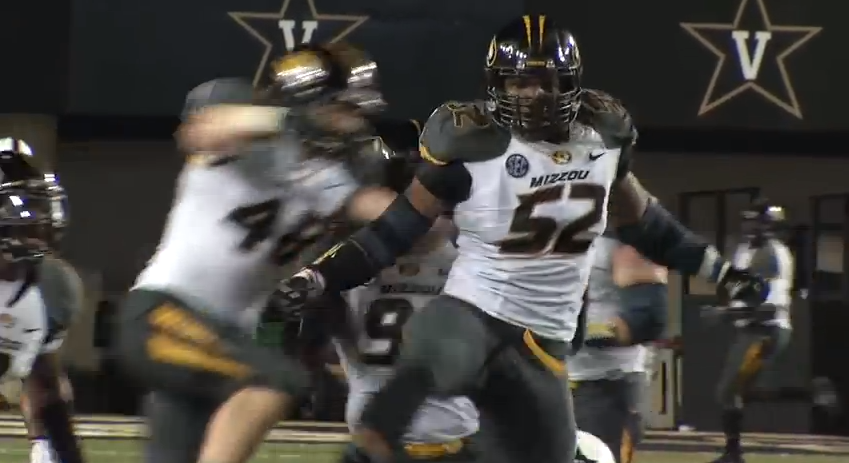By Louise Platter – Features Editor
NFL draft prospect Michael Sam played a vital role in the dismantling of oppressive stereotypes about sexuality by coming out as gay on Feb. 8.
For years, football has been the pinnacle of American masculinity. Skill and unbridled power combine to create a sport that can only be played by real men.
In American society, football players are often treated with a kind of reverence typically reserved for deities. They are the example of what we all long for our sons to become; strong, manly, All-American, and it almost goes without saying, heterosexual.
This would be why, on Feb. 8, University of Missouri defensive end and draft prospect Michael Sam shocked millions of Americans by becoming the first active NCAA division one football player to come out as gay.
In interviews with the New York Times and ESPN, 24-year-old Sam announced that he is “an openly, proud gay man” and spoke candidly about his sexuality, and its impact, or lack there of, on his goal of becoming an NFL player.
Although this revelation is no surprise to Sam’s teammates and coaches, who Sam came out to this August, his public announcement is completely unprecedented.
The NFL issued a statement the same night backing Sam.
“We admire Michael Sam’s honesty and courage. Michael is a football player. Any player with ability and determination can succeed in the NFL. We look forward to welcoming and supporting Michal Sam in 2014,” the statement read.
Although Sam has the support of the NFL and his team, it is hardly an easy path that he has ahead of him. The layers and layers of internalized homophobia and set in stone ideas about manhood that characterize the culture of football is seemingly insurmountable, and through his statement, Sam has put himself on the frontlines.
Almost overnight, Sam has become the face of the dismantling of the ridiculous expectations for American masculinity. He is now the poster child for LGBQT manhood. He is living proof that you can be a talented athlete and be gay.
Sam’s coming out is more than a personal journey for him, it is the beginning of a fundamental shift in the culture of American athletics. If heterosexuality is no longer a prerequisite for the NFL then it follows that it is inaccurate to categorize men by their sexuality. Broadway stars can be straight and football isn’t just a club for traditional ideals of manhood.
This paradigm shift will not occur all at once, and it will take more than just Sam to change the American attitude towards masculinity, but it’s a start.
If Michael Sam, a top draft pick, can be openly, and proudly, gay, then it just might be possible for Americans to realize that sexuality does not equate masculinity.
